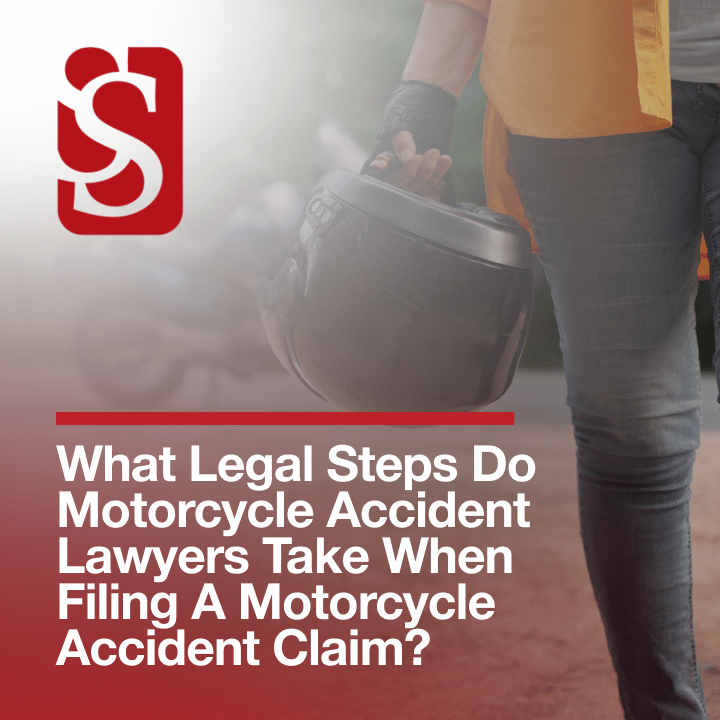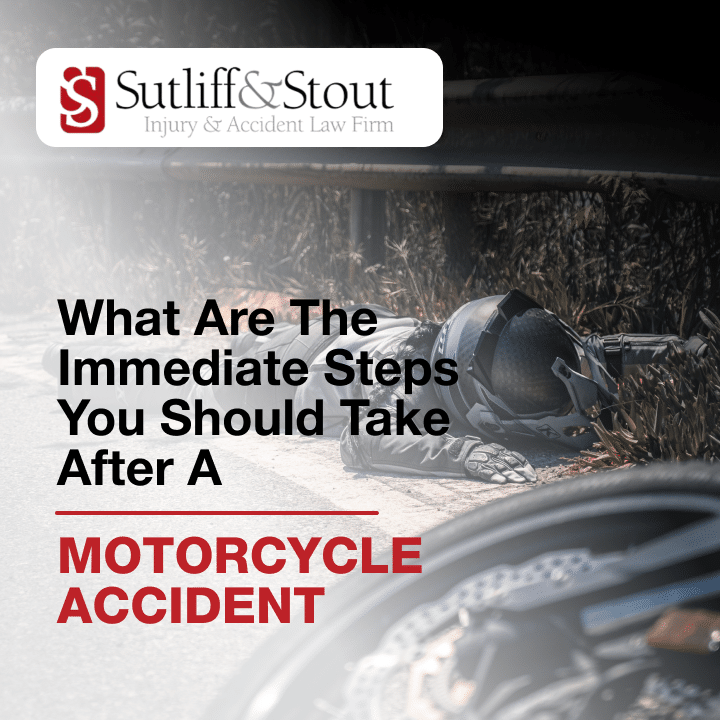Texas motorcycle permit restrictions play a crucial role in ensuring the safety of young riders on the road.
These regulations are designed to provide a structured and phased approach to motorcycle riding, enabling minors to gain experience while minimizing risks.
Understanding these restrictions is essential for young riders and their guardians, as it ensures compliance with the law and promotes safer riding practices.

Factoid About Motorcycle Accidents
| Statistic | Detail |
|---|---|
| Rider Risk | 28 times more likely to die, 4 times more likely to be injured |
| Injuries in 2021 | 83,000 motorcyclists injured |
| Unlicensed Drivers | 36% of fatal accidents involve unlicensed riders |
| Deadliest Month | August has the highest fatality rate |
| Weather Impact | Less than 2% of accidents occur in the rain |
| Fatalities in 2021 | 5,932 fatalities |
| Traffic Death Share | Motorcyclists make up 14% of all traffic deaths |
| Helmet Non-use | 2,251 fatalities without helmets |
| Speeding | 34% of fatalities involve speeding |
| Alcohol Influence | 27% of deaths involved alcohol |
| Helmet Effectiveness | Helmets are 37% effective in preventing fatalities |
| State Helmet Laws | 18 states require helmets for all motorcyclists |
Texas Motorcycle Permit Regulations
Texas has set specific regulations for motorcycle permits, especially for minors.
These rules are in place to ensure that young riders are well-prepared to handle the responsibilities of riding a motorcycle.
By adhering to these regulations, minors can develop their riding skills in a controlled and safe manner, reducing the likelihood of accidents and injuries.
Importance of Knowing These Restrictions for Young Riders
For young riders, being aware of and understanding the motorcycle permit restrictions is not just about legal compliance—it’s about safety.
These restrictions are designed to protect young riders from common hazards on the road and to foster responsible riding habits from an early age.
The Role of These Restrictions in Promoting Road Safety
The primary goal of Texas motorcycle permit restrictions is to enhance road safety.
By gradually introducing young riders to various aspects of motorcycle riding, these restrictions help in reducing accidents and ensuring that new riders are adequately prepared before they gain full riding privileges.
Graduated Driver’s License Program in Texas
The Graduated Driver’s License (GDL) Program in Texas is a system that allows minors to gain driving experience under lower-risk conditions.
This program includes various stages, each with its own set of restrictions and requirements, guiding young riders toward becoming safe and skilled drivers.
Age Requirements for Obtaining a Motorcycle Permit in Texas
To obtain a motorcycle permit in Texas, minors must meet specific age requirements.
Understanding these requirements is the first step for young individuals aspiring to ride a motorcycle, as it sets the foundation for their journey in acquiring a permit and eventually a license.
Obtaining a Motorcycle Permit in Texas
Obtaining a motorcycle permit in Texas marks a significant milestone for young enthusiasts eager to explore the world of motorcycling.
This crucial step ensures that minors are equipped with the necessary knowledge and skills to ride safely.
The process involves several steps, each designed to prepare the young rider for the responsibilities of being on the road.
Eligibility Criteria for Minors
When it comes to obtaining a motorcycle permit in Texas, minors must meet a set of specific eligibility criteria.
These requirements are designed to ensure that young riders are prepared and responsible enough to handle the responsibilities that come with operating a motorcycle.
Let’s look at what these criteria entail:
- The applicant must be at least 15 years old, ensuring they have reached a level of maturity necessary for safe riding.
- Proof of Texas residency is required to ensure that state-specific laws and guidelines are applicable to the permit holder.
- Completion of a state-approved motorcycle safety course is mandatory, providing the essential knowledge and skills for safe riding.
- The minor must be enrolled in school, emphasizing the importance of balancing education and riding responsibilities.
- A parent or guardian’s consent is necessary, highlighting the role of family support in the young rider’s journey.
Required Documents and Application Process
To successfully apply for a motorcycle permit in Texas, minors must gather and submit a series of important documents as part of a structured application process. Here’s what needs to be done, step by step:
- Proof of Identity
- Proof of Residency
- Completion Certificate of a Motorcycle Safety Course
- Verification of School Enrollment
- Parental Consent Form
Importance of a Motorcycle Safety Course
Enrolling in and completing a motorcycle safety course is crucial for minors, as it provides them with essential riding skills and knowledge about road safety.
These courses are tailored to instill responsible riding habits, ensuring that young riders are well-prepared to face various road conditions and scenarios.
The successful completion of this course is a testament to a minor’s commitment to safe riding and is a key requirement in the permit acquisition process.
Vision and Driver’s Exams
The vision and driver’s exams are pivotal in the permit process, evaluating a minor’s ability to see clearly and understand road rules.
Passing these exams confirms that the applicant possesses the fundamental capabilities essential for safe motorcycle operation.
These assessments ensure that every young rider has the necessary visual acuity and knowledge of traffic laws before hitting the road.
The Role of a Parent or Guardian in the Application Process
A parent or guardian plays an instrumental role in a minor’s journey to obtaining a motorcycle permit, providing guidance, support, and verification throughout the process.
Their involvement is crucial, from accompanying the minor during the application to ensuring they understand the gravity of the responsibility they’re undertaking.
This partnership between the young rider and their guardian reinforces the importance of safety and adherence to road rules, laying a solid foundation for responsible motorcycle riding.
Specific Restrictions for Motorcycle Permit Holders
In Texas, obtaining a motorcycle permit comes with a set of specific restrictions designed to ensure the safety of young riders. These restrictions are crucial for developing safe riding habits and reducing the likelihood of accidents among novice riders.
Passenger Limitations for Permit Holders
One significant restriction for motorcycle permit holders in Texas is the limitation on carrying passengers.
Young riders with a permit are allowed to carry only one passenger under 21 years old who is not a family member.
This rule is in place to minimize distractions and ensure that the permit holder can focus entirely on mastering their riding skills without the added responsibility of a passenger.
Time Restrictions for Motorcycle Use
Permit holders face time restrictions on when they can operate their motorcycles.
Riding between midnight and 5:00 a.m. is typically off-limits unless it’s for an emergency or travel to and from work or school-related activities.
These time restrictions are implemented to prevent young riders from facing the increased risks associated with nighttime riding.
Helmet Requirements for Riders Under 21
In Texas, riders under the age of 21 are required to wear helmets, regardless of whether they hold a permit or a full license.
This law aims to protect young riders by significantly reducing the risk of head injuries in the event of an accident.
Helmets are a critical safety tool, and their use is strictly enforced to ensure the well-being of young motorcyclists.
Prohibition of Electronic Device Usage While Riding
Another crucial restriction for motorcycle permit holders is the prohibition of using electronic devices while riding.
This includes hands-free devices, as the goal is to eliminate any distractions that could divert the rider’s attention from the road.
By focusing solely on their riding and the surrounding environment, young riders can develop the necessary skills and awareness to ride safely.
Engine Size Restrictions for 15-Year-Old Riders
For 15-year-old motorcycle permit holders, there’s a specific restriction on the engine size of the motorcycle they can operate. They are limited to motorcycles with engines of 250 cc or lighter.
This restriction ensures that young riders are not overwhelmed by handling more powerful motorcycles, which can be challenging for inexperienced riders.
Additional Considerations for Minor Riders
When minor riders in Texas obtain their motorcycle permits, there are additional factors they need to consider beyond the basic restrictions.
These considerations are integral to ensuring their safety and compliance with state laws, fostering a responsible approach to motorcycling from an early age.
Supervision Requirements for Permit Holders
One key consideration is the requirement for supervision.
While on the road, minor permit holders must be accompanied by a licensed motorcycle operator.
This measure ensures that the young rider has guidance and oversight, helping to instill safe riding practices and providing immediate assistance if needed.
Restrictions on Motorcycle Types Based on Engine Size
In addition to the specific engine size restriction for 15-year-olds, minor riders must also be aware of general restrictions on the types of motorcycles they can operate.
This is to ensure that the bike matches their skill level and physical capabilities, reducing the risk of accidents due to handling a motorcycle that is too powerful or unwieldy for a novice rider.
Transitioning to an Unrestricted License
Understanding the pathway from holding a permit to obtaining an unrestricted license is crucial for minor riders.
This process involves meeting specific milestones and demonstrating safe, competent riding over time.
Knowing the steps involved helps young riders set goals and work toward achieving full riding privileges.
Consequences of Violating Permit Restrictions
Minor riders must be aware of the consequences of not adhering to permit restrictions.
Violations can result in penalties, including fines or delays in progressing to an unrestricted license.
More importantly, non-compliance can increase the risk of accidents, underscoring the importance of following all rules and regulations.
Legal Implications and Safety
The legal implications and safety considerations of motorcycle permit restrictions in Texas are pivotal for young riders.
These laws and guidelines are not just bureaucratic hurdles but are designed to protect the riders and those around them.
Understanding these aspects can significantly contribute to a safer riding environment.
Legal Consequences of Non-Compliance with Permit Restrictions
Non-compliance with motorcycle permit restrictions carries significant legal consequences. These can range from fines to suspension of riding privileges.
Such penalties underscore the seriousness with which Texas views the safety of young motorcyclists and the general public.
It’s crucial for permit holders and their guardians to understand these potential consequences to avoid legal issues and ensure a smooth journey toward obtaining a full motorcycle license.
The Impact of Restrictions on Accident Rates and Rider Safety
The restrictions imposed on motorcycle permit holders have a direct correlation with accident rates and rider safety.
Statistics show that adherence to these rules can significantly reduce the likelihood of accidents involving young riders.
By limiting exposure to high-risk scenarios, such as nighttime riding or carrying passengers, these restrictions provide a safer learning environment for novice motorcyclists.
The Importance of Adhering to Helmet Laws
Helmet laws are a critical component of Texas’s motorcycle safety regulations, particularly for riders under 21.
Helmets drastically reduce the risk of head injuries, which are among the most severe outcomes of motorcycle accidents.
Compliance with helmet laws is not just about avoiding legal penalties—it’s a key measure that can be life-saving in the event of an accident.
Need Help? Contact Sutliff & Stout Today
If you’re a young rider or the parent of one, navigating the complexities of Texas motorcycle permit restrictions can be challenging.
Should you ever need assistance, especially in the unfortunate event of an accident, Sutliff & Stout are here to help.
As experienced Houston motorcycle accident attorneys, they provide the guidance and support you need.
Call (713) 405-1263 to ensure your rights are protected and to receive support tailored to your specific situation.
- What is a Catastrophic Injury? - January 30, 2025
- Essential Guide for Pedestrians Hit by Cars in Texas - January 30, 2025
- How to File a Wrongful Death Lawsuit in Texas - January 15, 2025








 (713) 405-1263
(713) 405-1263  550 Post Oak Blvd, Suite 530
550 Post Oak Blvd, Suite 530